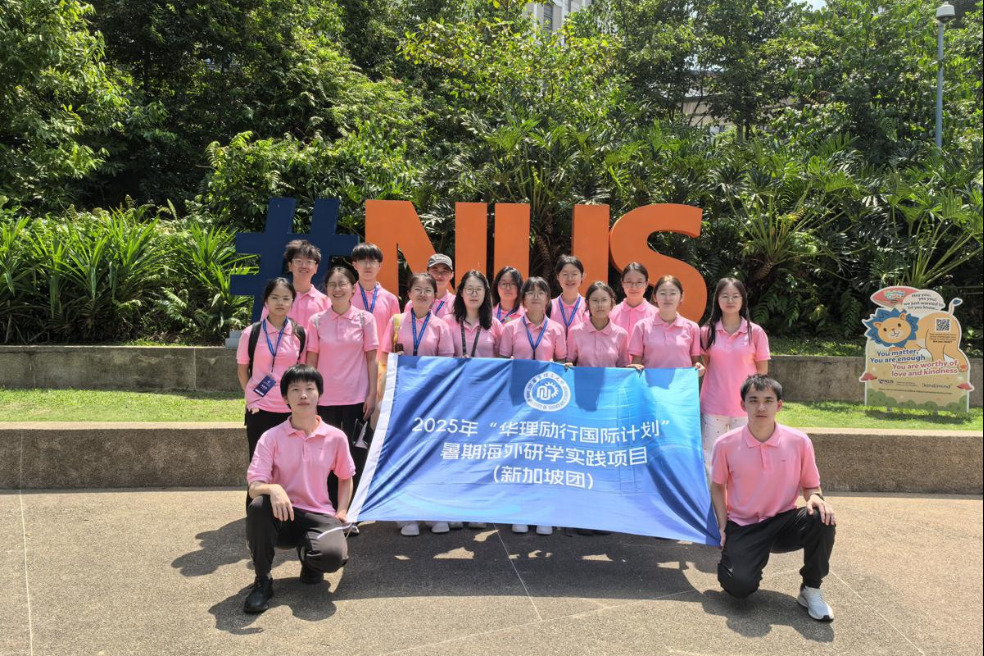Amended law requires records of minor offenses to be sealed
As of Jan 1, 2026, history of violations for lesser crimes will not be disclosed

People detained or fined for minor offenses such as damaging public facilities or getting into fights will no longer bear the burden of lifelong "social penalties" under a revised Chinese law requiring the sealing of such records.
In late June, the Standing Committee of the National People's Congress, China's top legislature, passed the amended Law on Penalties for Administration of Public Security, which takes effect Jan 1.
The law states that records of administrative penalties, including fines or detentions for offenses such as disrupting public order or brawling, will be sealed and not disclosed to any department or individual, except when required by relevant State authorities for case handling.
Legal professionals have praised the change, saying it aligns with the central leadership's push for improved social governance and will reduce the restrictions placed on offenders and their families by lifelong violation records.
For decades, many employers, including government agencies, military departments and State-owned enterprises, have been allowed to check candidates' violation and criminal records, creating significant pressure for those with past infractions.
In 2022, for example, an 18-year-old from Anhui province was detained after confronting people who had insulted his parents. The incident was added to his violation record, disqualifying him from military service and even costing him a hotel attendant job, according to the Southern Metropolis Daily.
"I have already paid for my mistake. Why should I face ongoing discrimination in employment? Don't I deserve a second chance?" the young man told the outlet.
Similar stories are common. A 37-year-old civil servant, using the name Zhao Ming, told Caijing Magazine that he was fined 500 yuan ($69.70) after a physical altercation 12 years ago. Since then, he has been unable to receive job promotions or awards. Zhao said he welcomes the revised law as a "significant legislative advancement" that could offer him a fresh start.
"Common problems faced by individuals with violation records are the inability to find desired jobs, a lack of promotion opportunities and encountering employment discrimination, which sometimes affects their families," said Zhu Zhengfu, a deputy to the NPC who has long advocated sealing records for minor offenses.
Zhu recounted the case of a farmer in Shaanxi province who was detained for five days after an assault. The man's record later caused his daughter to fail a teacher qualification exam, Zhu said.
"Violation records seriously damage residents' labor rights and human dignity and hinder social development," said Zhu, who is also a lawyer at Hylands Law Firm.
He noted the amended law follows a resolution adopted at the third plenary session of the 20th Communist Party of China Central Committee last year, which proposed implementing a system to seal minor offense records within five years.
Data from the National Bureau of Statistics showed that police handled more than 7.88 million public security cases in 2024. Over the past five years, the annual average has been around 8 million cases.
Peng Xinlin, a member of the China Association of Criminal Procedure Law, said public security violation records often lead to long-term social penalties that affect offenders' and their families' basic rights, including employment and education, hindering social reintegration.
"The legislative revision aims to strengthen human rights protection," said Peng, who is also a law professor at Beijing Normal University. "The change will help reduce social discrimination and provide opportunities for offenders to rehabilitate and start a new life."
Peng noted that the provision clarifying "sealing as the principle, inquiry as the exception" helps balance human rights protection and public security needs.
To prevent abuse, Peng called for strict limitations on violation record inquiries, suggesting that companies or government departments list specific reasons to review such records, including civil servant recruitment or hiring someone to work in special industries. He added that inquiries should leave electronic traces, and the penalties for those who make unauthorized inquiries or leak records should be further clarified.
caoyin@chinadaily.com.cn




































